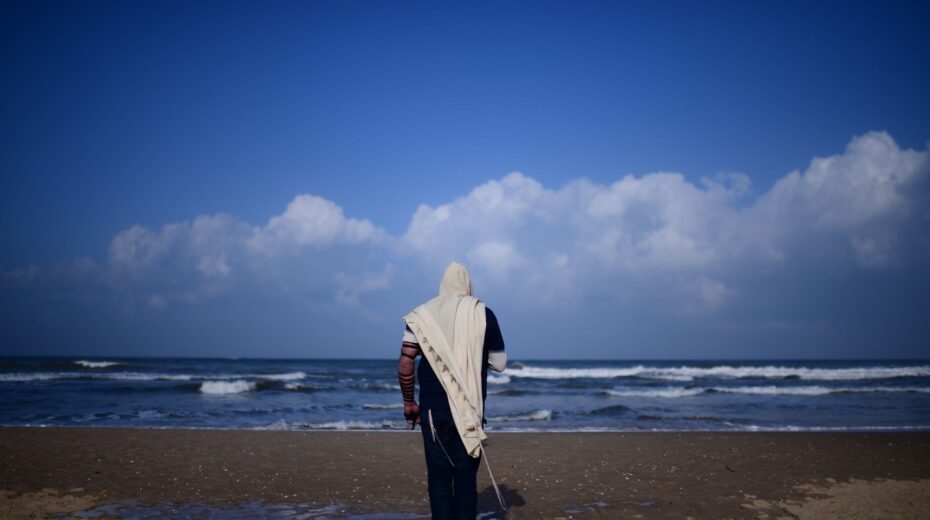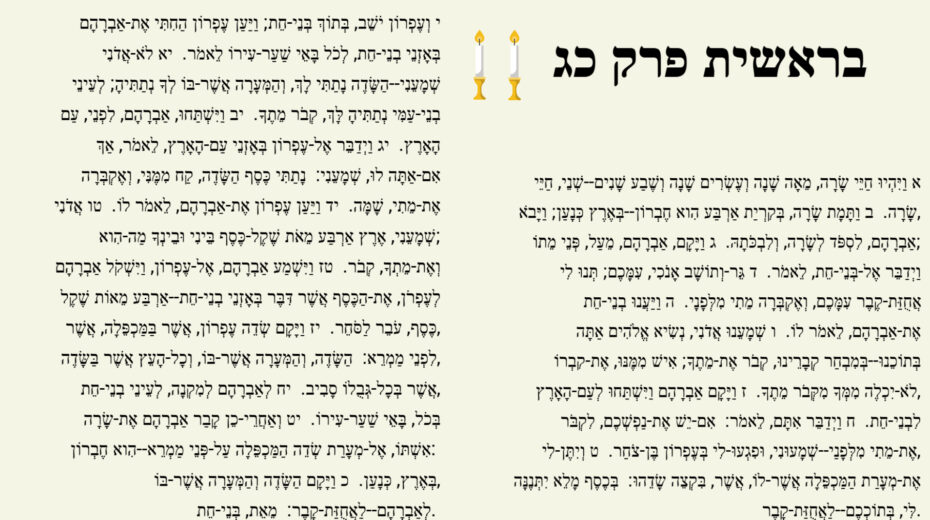This week’s Torah portion, Ki Tisa, really gets down to business. It begins very relaxed with the building of the tabernacle, a few laws about the Shabbat, but then it shifts into high gear when Moses receives the first version of the Tablets of the Law:
And he gave to Moses, when he had finished speaking with him on Mount Sinai, the two tablets of the testimony, tablets of stone, written with the finger of God. (Exodus 31:18)
Written with the finger of God sounds pretty cool, and Jewish tradition teaches that the letters were partially floating in a very ethereal kind of way. It was certainly an interesting sight.
But now the action really begins, because Moses descends from Mount Sinai with these tablets and sees the people dancing around the Golden Calf:
And as soon as he came near the camp and saw the calf and the dancing, Moses’ anger burned hot, and he threw the tablets out of his hands and broke them at the foot of the mountain. He took the calf that they had made and burned it with fire and ground it to powder and scattered it on the water and made the people of Israel drink it. (Exodus 32:19-20).
What a scene! Not only were the Tablets of the Law written by God Himself smashed to pieces, Moses in his anger also forced the people to drink water containing the pulverized gold of the calf-like idol. You can imagine the shock and trauma of the situation. But it was a fitting reaction. The people had been caught red-handed cheating on God, and just a mere 40 days after they had heard His voice for themselves.
But the punishment didn’t stop there:
…then Moses stood in the gate of the camp and said, “Who is on the Lord’s side? Come to me.” And all the sons of Levi gathered around him. And he said to them, “Thus says the Lord God of Israel, ‘Put your sword on your side each of you, and go to and fro from gate to gate throughout the camp, and each of you kill his brother and his companion and his neighbor.’” And the sons of Levi did according to the word of Moses. And that day about three thousand men of the people fell. (Exodus 32:26-28)
Here we see that it was actually not the entire nation that was guilty, but “only” 3,000 men. Still, the entire nation was held accountable for not stopping the wrongdoers.
Following the punishment, Moses returns to the mountain.
The next day Moses said to the people, “You have sinned a great sin. And now I will go up to the Lord; perhaps I can make atonement for your sin.” (Exodus 32:30)
God finally allowed Moses to appease Him and then commanded Moses to make new stone tablets. However, these were made by Moses and not by God as the first two had been.
A point of interest in the conversation between God and Moses is the latter’s argument in defense of the Israelites:
And Moses quickly bowed his head toward the earth and worshiped. And he said, “If now I have found favor in your sight, O Lord, please let the Lord go in the midst of us, for it is a stiff-necked people, and pardon our iniquity and our sin, and take us for your inheritance.” (Exodus 34:8-9)
Two chapters earlier, however, God had said that he wanted to punish the people for being stiff-necked:
And the Lord said to Moses, “I have seen this people, and behold, it is a stiff-necked people. Now therefore let me alone, that my wrath may burn hot against them and I may consume them, in order that I may make a great nation of you.” (Exodus 32:9-10)
Moses uses the same argument for the Israelites that God used against them shortly before. Did the author of the Bible make a mistake? What is going on here? Jewish Bible commentators, of course, have given various explanations for these contradictory verses over the millennia, but one is particularly relevant today. Rabbi Yitzchak Nissenbaum, who perished in the Warsaw ghetto, suggests that Moses said something like the following to God:
“Almighty God, look upon this people with benevolence, for what is their greatest vice now will one day be their most heroic virtue. They are indeed a stubborn people … But just as they are stubborn in their disobedience now, so one day they will be stubborn in their loyalty too. Nations will ask them to assimilate, but they will refuse. More powerful religions will urge them to convert, but they will resist. They will suffer humiliation, persecution, even torture and death because of the name they bear and the faith they profess, but they will remain true to the covenant their ancestors made with you. They will go to their death with the words ‘Ani ma’amin,’ ‘I believe.’ These are a people who are awesome in their tenacity – and though it is their failure now, there will be times well into the future when it will be their noblest strength.”














